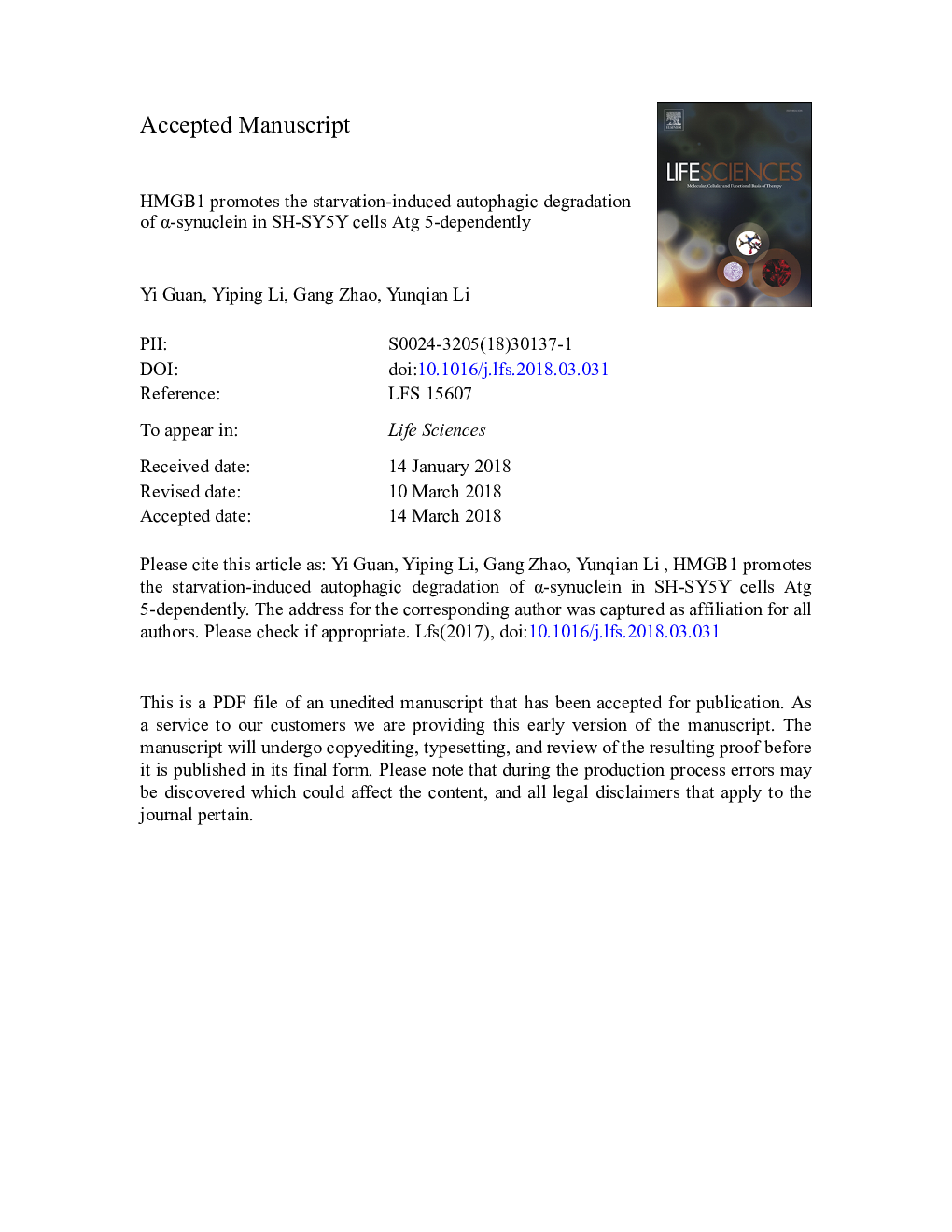| Article ID | Journal | Published Year | Pages | File Type |
|---|---|---|---|---|
| 8534969 | Life Sciences | 2018 | 21 Pages |
Abstract
Impaired autophagic clearance of aggregated α-synuclein is considered as one of key mechanisms underlining Parkinson disease (PD). High-mobility group protein B1 (HMGB1) has recently been demonstrated to mediate persistent neuroinflammation and consequent progressive neurodegeneration by promoting multiple inflammatory and neurotoxic factors. In this study, we examined the influence of the overexpression of wild-type (WT) and mutant-type (MT, A53T and A30P) α-synuclein on the autophagy in neuroblastoma SH-SY5Y cells under starvation, and then investigated the regulation of endogenous HMGB1 on the α-synuclein degradation and on the starvation-induced autophagy in the α-synuclein-overexpressed SH-SY5Y cells. It was demonstrated that the overexpression of WT or MT α-synuclein significantly downregulated the starvation-induced conversion of LC3I to LC3II and autophagy protein (Atg) 5 expression, whereas markedly inhibited the starvation-downregulated mTOR in SH-SY5Y cells. On the other side, the lentivirus-mediated upregulation of endogenous HMGB1 promoted the degradation of WT or MT α-synuclein in SH-SY5Y cells autophagy-dependently via promoting Atg 5, but not mTOR, the Atg 5 knockdown downregulated the HMGB1-mediated promotion to α-synuclein degeneration. Thus, we concluded that α-synuclein inhibited the starvation-induced autophagy in neuroblastoma SH-SY5Y cells via inhibiting the mTOR/Atg 5 signaling. However, the endogenous HMGB1 promoted the autophagic degradation of α-synuclein via the Atg 5-dependent autophagy-initiation pathway, implying the protective role of endogenous HMGB1 in the neuroblastoma cells against the α-synuclein accumulation.
Keywords
Related Topics
Health Sciences
Medicine and Dentistry
Cardiology and Cardiovascular Medicine
Authors
Yi Guan, Yiping Li, Gang Zhao, Yunqian Li,
